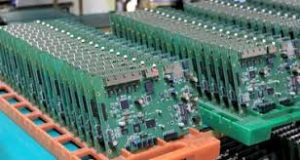conformal coating in Printed circuit board assembly services
Conformal coating plays a crucial role in Printed Circuit Board Assembly (PCBA) services, serving as a protective barrier that enhances the reliability and durability of electronic devices. Conformal coating is a thin layer of material applied to the surface of printed circuit boards to safeguard against environmental factors such as moisture, dust, chemicals, and temperature fluctuations. This coating acts as a shield, safeguarding the delicate electronic components and circuitry from potential damage or corrosion, thereby extending the lifespan of the PCB and the overall reliability of the electronic device.
One of the primary functions of conformal coating is to provide insulation and protection against moisture and humidity. Moisture ingress can lead to corrosion, short circuits, and electrical failures within electronic devices, particularly in harsh or outdoor environments. Conformal coating creates a barrier that prevents moisture from reaching the sensitive components on the printed circuit board assembly services, thereby reducing the risk of malfunctions and ensuring consistent performance even in humid conditions.
Moreover, conformal coating offers protection against dust, dirt, and airborne contaminants that can accumulate on the surface of PCBs over time. These contaminants may compromise the performance and reliability of electronic devices by interfering with electrical connections or causing overheating. Conformal coating acts as a barrier, preventing dust and dirt from settling on the PCB and reducing the likelihood of performance degradation or failure due to contamination.

Explain the role of conformal coating in Printed circuit board assembly services?
Furthermore, conformal coating enhances the chemical resistance of printed circuit boards, making them more resilient to exposure to solvents, fuels, and other harsh chemicals. In industries such as automotive, aerospace, and industrial manufacturing, where electronic devices may come into contact with chemicals during operation or maintenance, conformal coating helps safeguard against chemical damage and prolongs the service life of the PCB and the associated electronic systems.
In addition to environmental protection, conformal coating also provides mechanical reinforcement for delicate components and solder joints on the PCB. By encapsulating the components in a thin layer of protective material, conformal coating helps dampen vibrations and shocks, reducing the risk of mechanical stress or physical damage that could result from handling, transportation, or operation of the electronic device. This mechanical reinforcement contributes to the overall robustness and reliability of the PCB assembly.
Moreover, conformal coating can also offer thermal management benefits by improving heat dissipation from electronic components. Some types of conformal coating materials have thermal conductivity properties that help dissipate heat away from hotspots on the PCB, thereby reducing the risk of overheating and prolonging the lifespan of sensitive components such as integrated circuits and power semiconductors. This thermal management capability is particularly important in high-power applications where efficient heat dissipation is critical for reliable operation.
In conclusion, conformal coating plays a multifaceted role in Printed Circuit Board Assembly services, offering essential protection against environmental hazards, mechanical stress, and thermal challenges. By providing insulation, moisture resistance, chemical protection, mechanical reinforcement, and thermal management, conformal coating enhances the reliability, durability, and performance of electronic devices across various industries and applications. As electronic devices continue to evolve and operate in increasingly demanding environments, the role of conformal coating in safeguarding PCBs and ensuring their long-term reliability will remain indispensable in the field of electronics manufacturing.


